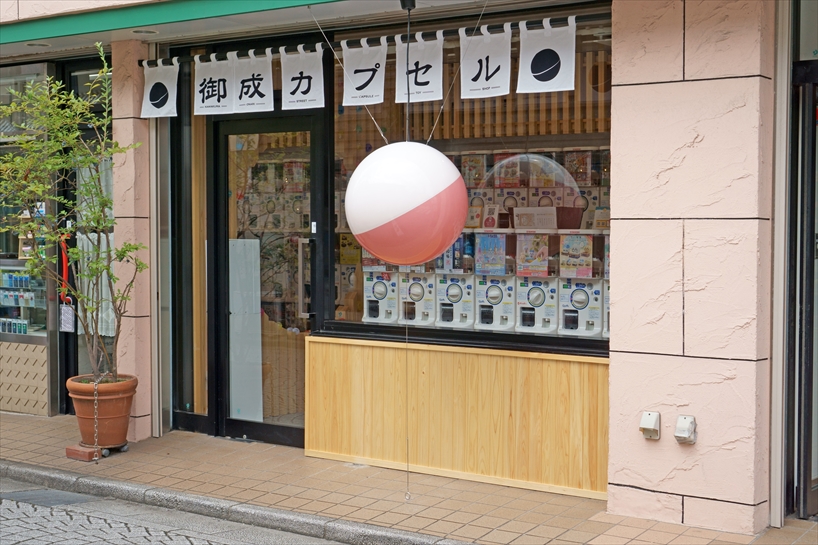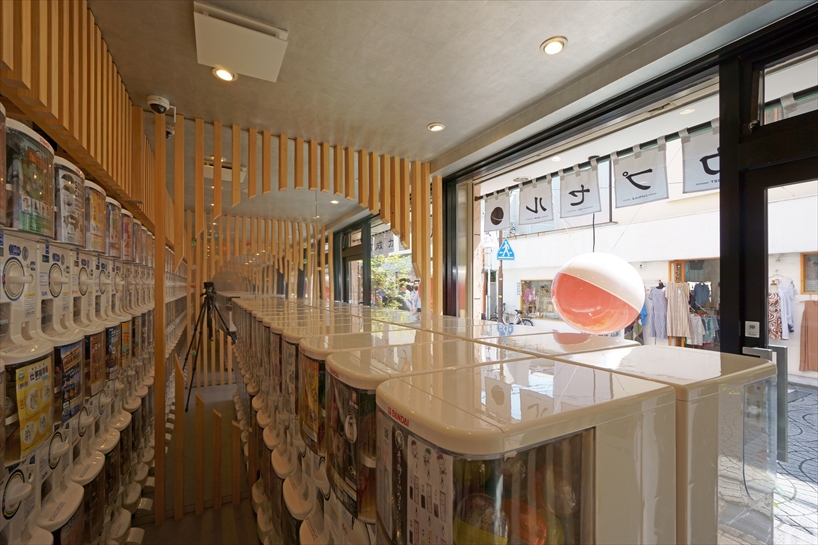YOD Group designs Terra restaurant interior to “mirror its surroundings”
Ukrainian design studio YOD Group dressed this restaurant interior in Vynnyky with terracotta tiles and slabs of green glass to reflect the earthy landscape outside.
Called Terra, the eatery features a colour and material palette that takes cues from the rolling hills and a lake that border the restaurant. It was completed in February 2022, just before Russia’s invasion of Ukraine.
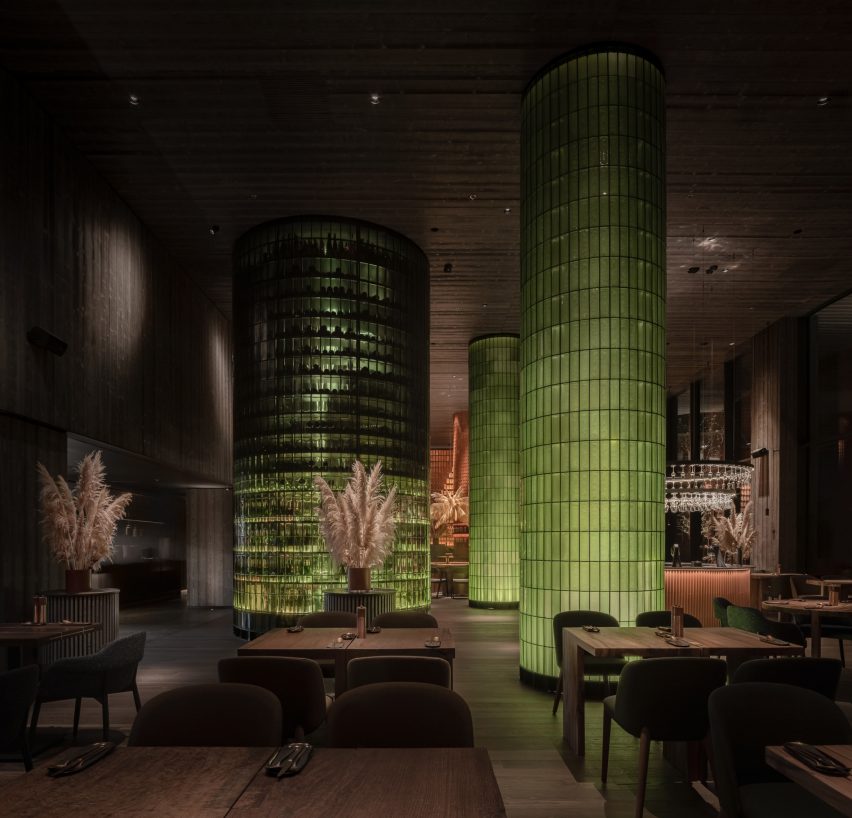
YOD Group created the interior across a single hall, which features clusters of plush, low-slung armchairs and sofas arranged around both meandering and rectilinear dark wooden tables.
These seating areas are interrupted only by large rounded columns clad in glass bricks, which are illuminated from the inside to create a watery green glow designed to echo the nearby lake.
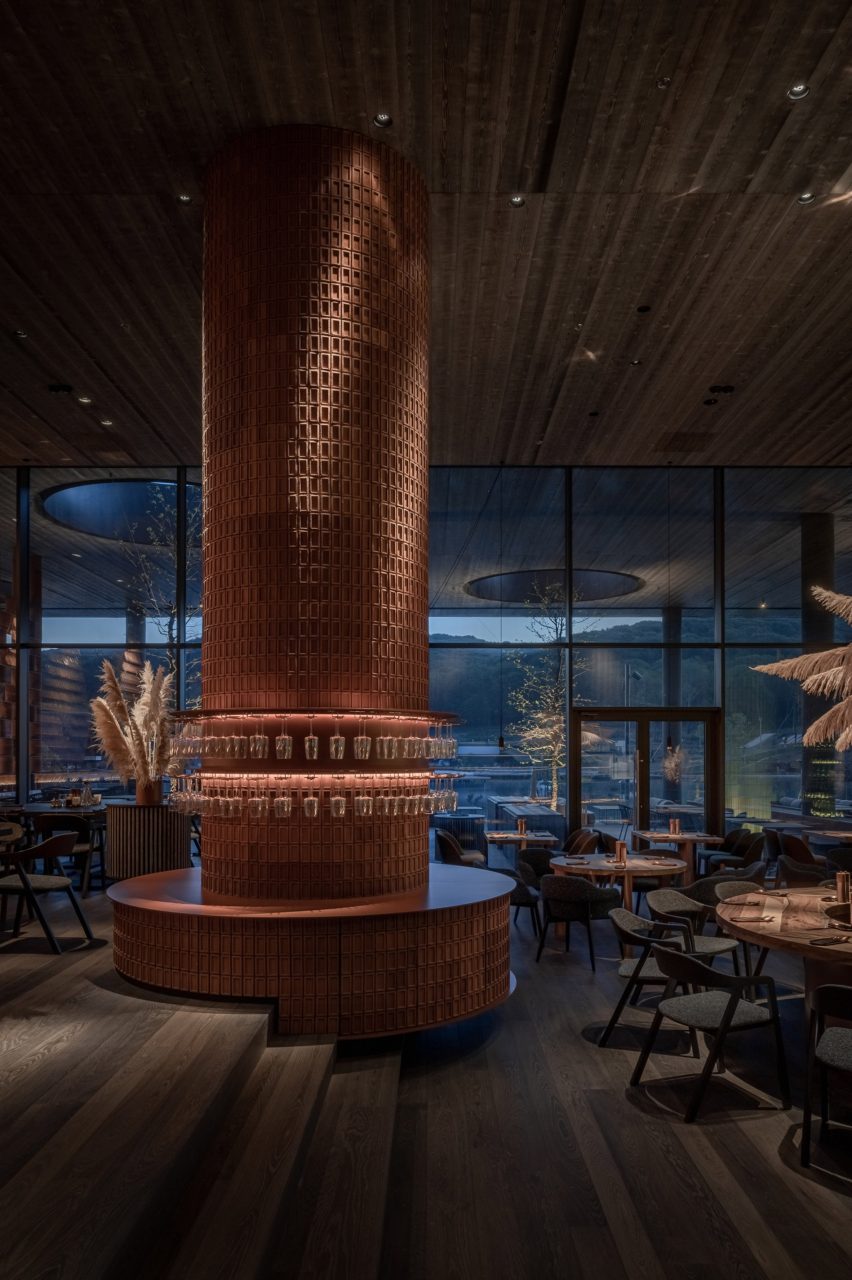
The largest of these columns houses a curved wine cellar within an internal spiral staircase, while the transparent glass reveals the ghostly silhouettes of stored wine bottles.
Textured terracotta tiles make up rounded waiter stations, which were designed to mirror the earthiness of the restaurant’s exterior setting.
The stations also nod to the Ukrainian tradition of covering furnaces and fireplaces with tiles, according to YOD Group.
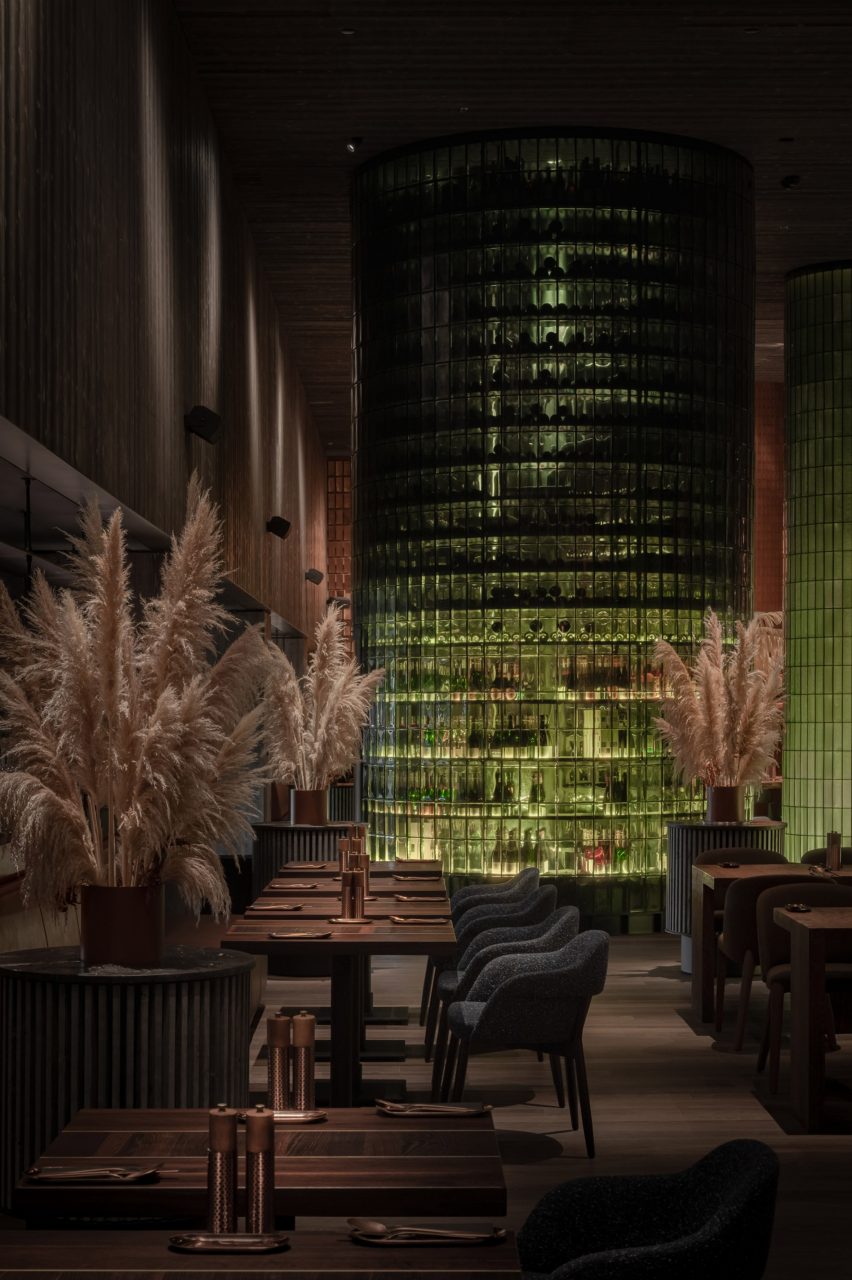
“We aimed to extract colours, textures and impressions from the landscape to translate them into the interior design language,” explained the studio.
“Like the eyedropper tool in Photoshop, but on a real-life scale, we designed the space to mirror its surroundings.”
Another wall is covered in adjustable copper-hued glass slabs that feature decorative markings made by imprinting local grasses on their surfaces.
The moveable wall is intended as a metaphor to symbolise the way reeds sway in the wind, said YOD Group.
“Guests can not only touch the glass slabs but also interact with them and change the pattern on the wall, becoming co-creators of the design.”
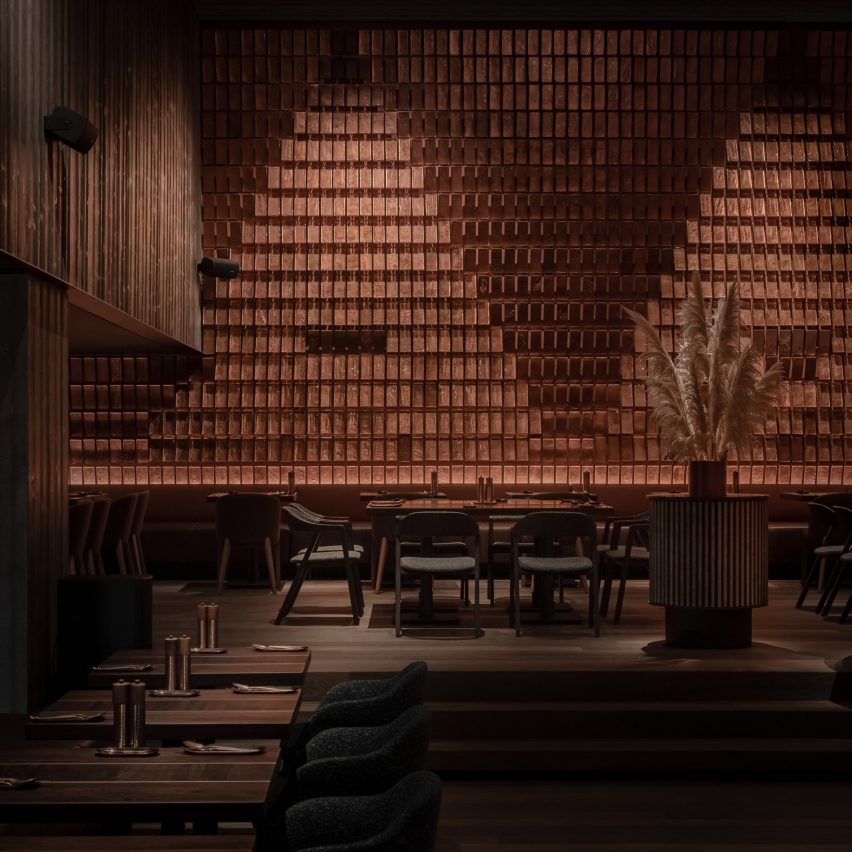
Bouquets of pampas grass are interspersed throughout the interior, in a nod to the restaurant’s lakeside terrace where visitors can dine outside.
Terra is shortlisted in the restaurant and bar interior category of the 2022 Dezeen Awards, which announces its winners later this month.
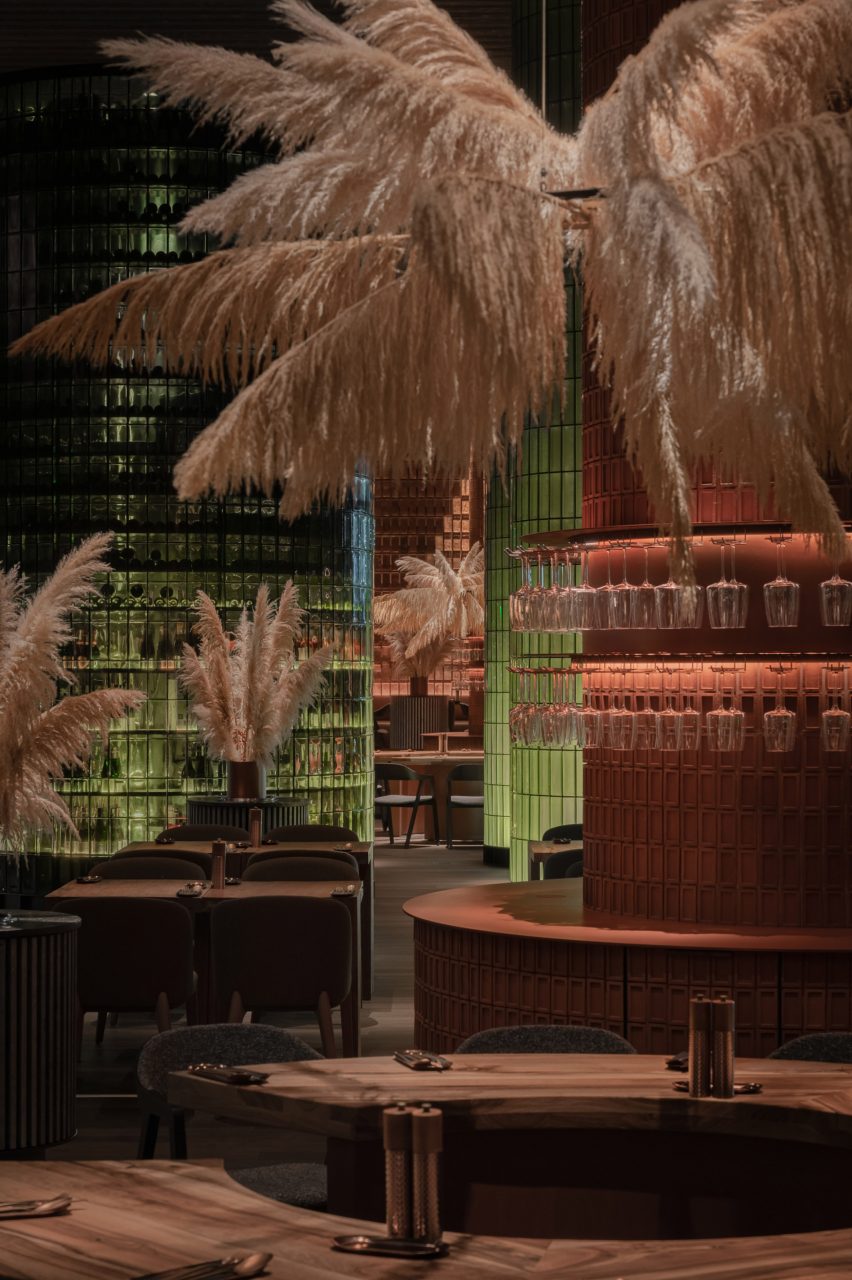
Last year, the category’s winning eatery was another restaurant in Ukraine – Yakusha Design’s Istetyka in Kyiv, which has an interior characterised by rough concrete, polished stone and smooth steel.
YOD Group also designed a coffee shop in Ukraine’s capital that features pixel-like mosaics in a hole-in-the-wall-style bar.
The photography is by Yevhenii Avramenko.



